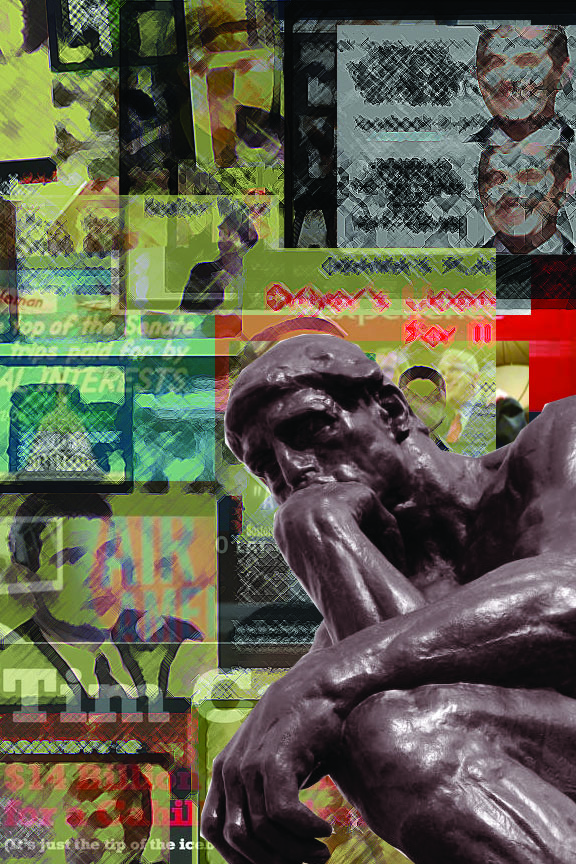Whoever said that democracy isn’t a spectator sport had clearly not watched TV as of late.
Campaign ads have replaced football and Anderson Cooper as my main sources of senseless entertainment. The sound of slinging mud has drowned the noise of bouncing balls as the white noise from the tube. And I can almost smell the musty reek of bought elections.
Election season is a humbling experience ““ it is a reminder that those in office are just as shallow as everyone else. It is also a sobering experience, for now we see, in full color, the clowns who run this country. Political ads have always bordered on absurdity, but this midterm election’s campaigns have proven spectacularly successful at making a mockery of democracy. Never has money’s sway been so obvious.
The easiest culprit is, as usual, those conniving corporations. That politics and money go hand in hand has never been a secret, and for those who mistrust all things rich and powerful, this year is ripe for complaint. The January ruling in Citizens United v. Federal Election Commission lifted restrictions on corporate funding of political ads, just in time for November.
And, well, what do you know ““ independent group ad-spending quintupled (that’s five times) that of four years ago. Many (our president included) have pondered whether the Citizens United ruling has anything to do with it. Wherever the money comes from, however, one thing is certain: In 2010, money talks.
In case this was not immediately apparent, one needs to only look at our own golden girl, Meg Whitman. Our Republican gubernatorial hopeful has happily frittered away more than $140 million from her own purse on the ol’ campaign trail. Every time her mild mug appears on my TV, a little smile flashes inwardly within me. For I can’t help but wonder, “So what?”
I cannot recall the last time a television persuaded me in matters political. The barrage of big-moneyed advertisements, even those I find morally atrocious, are at worst a negligible annoyance, but mostly they are quite amusing.
Democracy’s greatest threat is not the dirty money poured into the campaign circus. The real danger lies in the idiocy and gullibility of the electorate.
Money will always be the name of the game. This is the price of a democracy. There is no sensible reason for a free society not to tolerate a person or persons using their own money as they see fit. To restrict that belies the very nature of a free election, however unsavory the implication.
Consider a fantastically fitting example, the Latinos for Reform campaign. For those who have been spared this particular inanity, this independent group’s entire agenda is to dissuade Latinos from voting. Who knows what secret neo-fascist, corporate illuminati money went into this ad? What I do know is that the problem is not the fact that this ad was made. The problem is if people actually obey.
The gut reaction, however, is to condemn American politics as degenerating into the hands of those who can afford it. The intuitive response is to oppose the system itself, to call for a more responsible campaign finance.
Yet what we need instead is a more responsible voter, one who will not be so swayed by what is shown on the TV, one who cannot be purchased by a measly ad campaign. The opposite of that ““ the irresponsible voter ““ is a description I’m sure none here fit, but I suspect I cannot say the same for the electorate at large. And that, my friends, is something far more menacing than mere money.
For there will always be silliness, and big money to fund it. But money can’t buy your vote if you don’t buy their bluff.
Do campaign advertisements drive you mad? E-mail Manalastas at jmanalastas@media.ucla.edu. Send general comments to opinion@media.ucla.edu.
